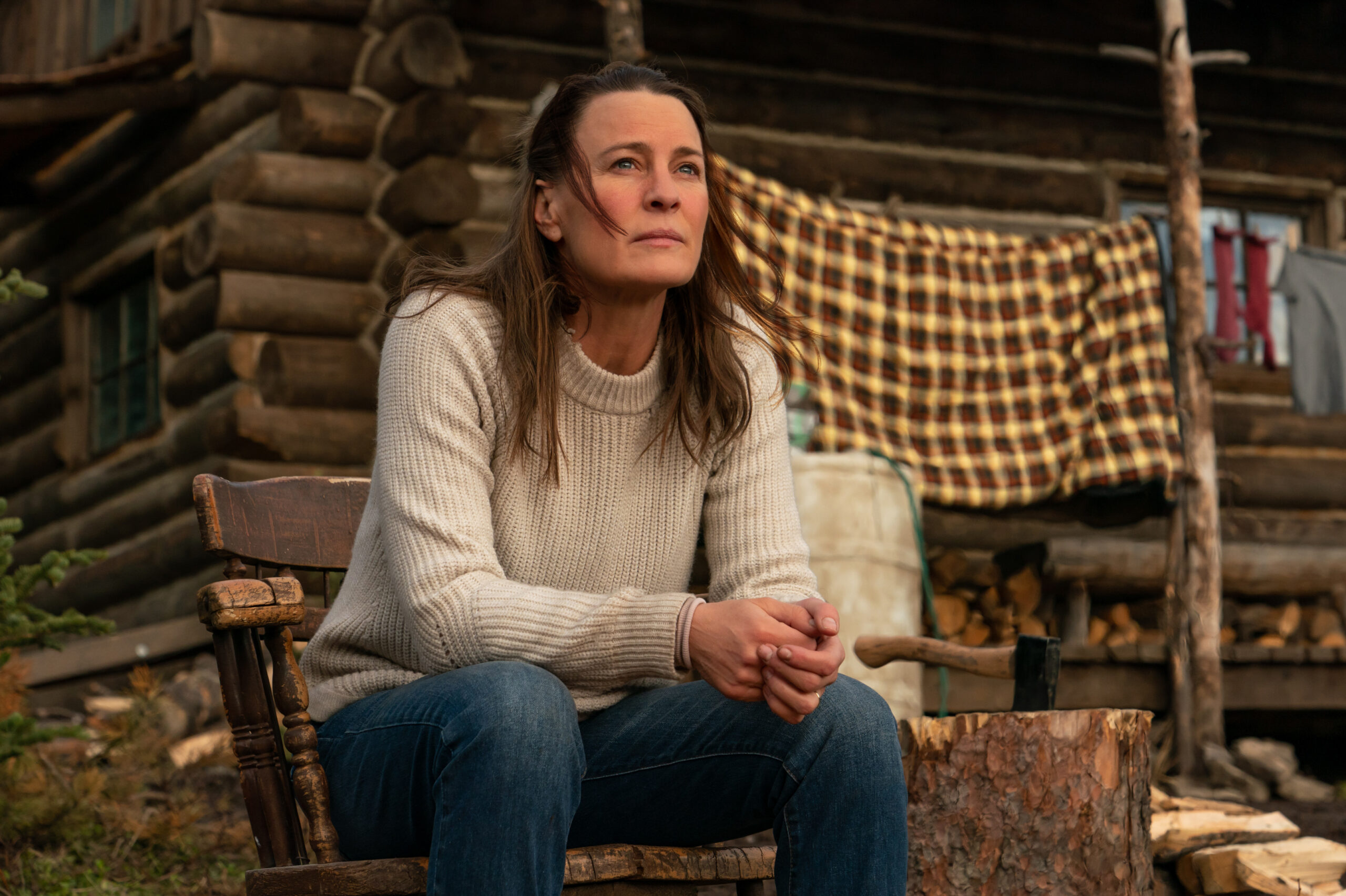A portrait of grief rendered in a minor key, Robin Wright’s directorial debut Land, in which the actress turned director also stars, is a spare picture that works on the basis of two strong performances and beautiful cinematography in the wilds of Wyoming. It has purpose in its simplicity and is largely affecting, however expected. The set-up is not high-concept—a person at the end of life’s rope contemplating the void. But Land succeeds in looking at grieving, in all its lonely contemplations that fill hours, days and years, with unfettered clarity.
After a near unbearable loss, Chicagoan Edee (Wright) is an exposed nerve that could either continue living or not; she doesn’t much care. The picture’s opening finds her stricken with sorrow, her concerned sister Kim Dickens of little consolation. Healing, if there can be any, will come only in isolation, and she wishes for no human contact, too pained to engage in trivialities. We have seen this sort of retreat-to-nature-to-heal picture before, most recently starring Reese Witherspoon in Wild, richer in character and more inventive in structure.
Edie hitches a U-Haul and hits the road, discarding the city and her cell phone (symbolic, yes, but would you really do that if you were moving alone to the wilderness?) in favor of a rugged, Alberta-shot version of Wyoming, complete with picturesque cabin overlooking a vast forest and valley (I found myself wondering if the place was available for an Airbnb weekend getaway). Upon arrival, she quickly retreats inside as if to shield from the outside world; she can barely muster a muted thank you to her guide.
Much of Land is a survivalist discourse, Edee learning to set traps, hunt and kill her own food, gather wood for the chilly winter fire (there is no electricity or plumbing) and evade bears. All of this is fairly standard yet reasonably compelling. While there are few surprises in Jesse Chatham’s screenplay, Wright anchors the familiar emotional beats with the precision of a pro, capturing Edee’s predicament and evolution in close-ups, giving herself ample latitude to suggest past mysteries and subtle glimmers of reawakening (of course, there are seasons that change and melting ice, in case we haven’t gotten the point that time slowly heals).
Expectedly, there is also a life-or-death crisis, allowing for the introduction of a second character, Miguel (Demian Bichir), a kind local whose unlikely friendship provides Edie a respite from solitude. As it turns out, Miguel is nursing his own loss, and they become kindred, symmetrical spirits. To her credit, Chatham wisely sidesteps turning this chaste friendship into a love affair, instead constructing Miguel as dimensional, conflicted person who may be capable of helping Edee survive but is unable, for his own reasons, to articulate his own despair or go deeper. This connection becomes the catalyst for Edee’s eventual rebirth, and she’s also aided by a Native American nurse named Alawa (Sarah Dawn Pledge), who provides important information at a critical juncture.
While ostensibly about reconnecting with nature and isolation to heal, reengage or otherwise find meaning (or any real need to remain alive), Wright eschews the cavalier, philosophical brand of soul searching explored in, perhaps, ex-husband Sean Penn’s great 2007 picture Into the Wild, an austere and poetic piece of environmental endurance.
Yet Wright proves an adept filmmaker in her own right when it comes to depicting intimacy and simple human drama writ large against a big canvas backdrop. At times, Bobby Bukowski’s nature cinematography threatens to eclipse the film with a few too many landscape shots, some from the same angle or at least with similar views of the mountains at the foot of the cabin; they can veer toward nature porn. But his lensing choices, including shifting lighting severity and camera mobility, effectively suggest Edie’s increasingly dire plight.
Land, beautifully acted and shot, compels in its look at a friendship between two wounded souls; it is gripping in Wright’s melodrama-free sensitivity. Wright and Bichir provide the pleasure of watching a pair of pros underplay with easy chemistry. Their exchanges, which convey a slow-going, mutual investment, are Land’s strongest suit.
3 stars.



